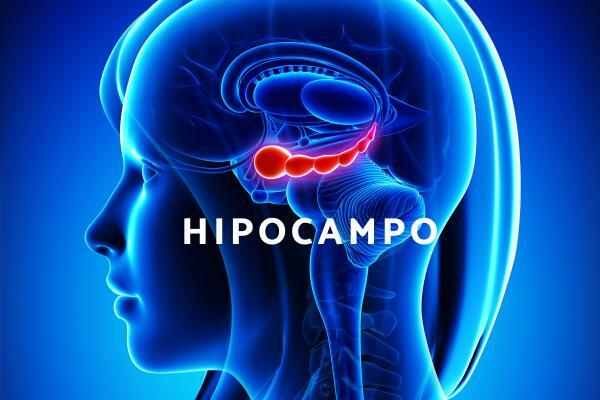
High levels of concentration are one of the most controversial research topics that have been detected in the field of medicine and psychology. In general, excessive focus can impact the development of activities of daily living. Although this could sometimes be considered an advantage since a large amount of energy is deposited in a given one, it is possible that it implies the presence of some personality characteristics associated with some clinical conditions, such as attention deficit hyperactivity disorder, autism or high capabilities.
In this Psychology-Online article we will explain What is hyperfocus or hyperconcentration and how to detect it.
Hyperfocus or hyperfixation consists of a high level of concentration towards a specific task or stimulus. When faced with an element that requires attention, it is common for people to tend to ignore the environment in which they find themselves. For this reason, those who have hyperfocus or hyperfixation usually allocate great mental effort towards carrying out instructions and/or activities, thus avoiding any distracting element that could interfere with the performance.
Although this is a quality that could be beneficial, people who have high levels of concentration are usually diagnosed with mental health disorders due to the difficulties it causes in the area of social, work and family relationships of daily life.
Due to the interest that arises in this topic, it is pertinent to expose some characteristics that underlie this condition. Below we mention the main signs to know if I have hyperfocus or hyperfixation:
- Continuous and inflexible interest in the same topic.
- Loss of notion of time and space.
- Difficulty in varying the focus of attention.
- Resistance to random changes in the environment.
- Low tolerance for frustration.
- Disinterest in other activities and/or situations of the work, family and social environment.
It should be noted that the isolated presence of any of these characteristics does not necessarily imply having hyperfocus or hyperfixation. Therefore, if in doubt, a clinical evaluation by a mental health professional is essential to confirm or rule it out.

This clinical condition is linked to some mental health problems. Broadly speaking, many diagnoses used within psychology and medicine share the same symptom. In this section, we will talk about which disorders have hyperfocus:
Autism
Autism or autism spectrum disorder (ASD) is a neurological condition that affects brain development and the way a person relates, communicates and behaves. It is also called "autism spectrum disorder" because it encompasses a wide range of manifestations and degrees. This situation can produce a excessive contact with some stimulus or object make it interesting. For this reason, obstacles often appear in establishing social relationships that last over time.
In autism spectrum disorder, hyperfocus manifests itself in situations that involve concentration on specific elements of daily life. The presence of these objects is essential for autistic people to interact. In the following article you will find information about Types of autism and their characteristics.
For example, someone on the autism spectrum might experience hyperfocus when completely immersed in a topic or activity that fascinates them. During this state of immersion, they can acquire deep and detailed knowledge in the area of interest, often showing exceptional concentration and outstanding ability in that sphere.
Attention Deficit Hyperactivity Disorder (ADHD)
Attention Deficit Hyperactivity Disorder (ADHD) is a neurological condition that affects a person's ability to maintain attention, control impulses, and moderate activity motorboat. This disorder is commonly diagnosed in childhood, but can persist into adolescence and adulthood.
Often, people with ADHD They tend to focus their attention on certain stimuli that produce distractions. Likewise, hyperactivity is a mechanism that conceives certain elements that cannot be left aside. This can be noticed in those people who are constantly moving in a work or school environment.
For example, a person with ADHD might experience hyperfocus when becoming deeply immersed in a project or activity they are passionate about. During this state of intense concentration, they can demonstrate exceptional productivity and outstanding performance in the area of interest. However, you could lose track of time and affect other activities of daily living.
Obsessive-compulsive disorder
The appearance of obsessions, routines and specific rituals may be related to persistence of foci precise attentional deficits, although the relationship between OCD and hyperfocus is complex and can vary from person to person. other. For one thing, some people with OCD may experience moments of hyperfocus when they focus on their obsessions or compulsions, which can cause them to engage in these behaviors very intensely and increase the distress associated with OCD.
Likewise, other people with OCD may experience a type of hyperfocus unrelated to obsessions or compulsions, which can result in increased distractions from everyday life and difficulty completing other tasks important.
As an example, a security-obsessed person with OCD might experience hyperfocus when constantly checking the locks and alarms in their home. In this state of extreme concentration, you can spend hours checking every detail, often losing track of time and neglecting other responsibilities. This hyperfocus on safety is directly related to the person's obsessions and compulsions, as repetitive review provides brief relief from the person's anxiety.
Despite the difficulties that these situations entail, there are methods to counteract the negative effects that are generated. In the next items, we will develop some tools to control hyperfocus:
- Psychological Therapy: As we have mentioned in previous sections, hyperfocus is a symptom of several mental health disorders. Given this, therapy is a device that invites reflection about the necessary limits regarding attention and concentration. In this way, a mental health professional can provide the necessary tools to cope with these situations in a more pleasant way.
- Setting limits: It is important to know the spaces in which hyperfocus develops. For this reason, it is worth imposing temporary deadlines to avoid further distractions. Establishing limits allows for awareness about the underlying problem.
- Mindful: This methodology consists of maintaining full and equal attention to any stimulus in the present. In this way, the lack of precise situations and/or objects prevents hyperfocus.
- Psychiatric medication: In cases of considerable severity, the provision of psychiatric medications is a viable option. However, their intake must be supervised by a specialist.

This article is merely informative, at Psychology-Online we do not have the power to make a diagnosis or recommend a treatment. We invite you to go to a psychologist to treat your particular case.


